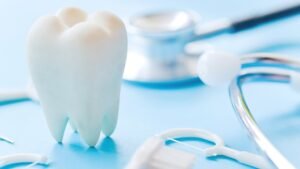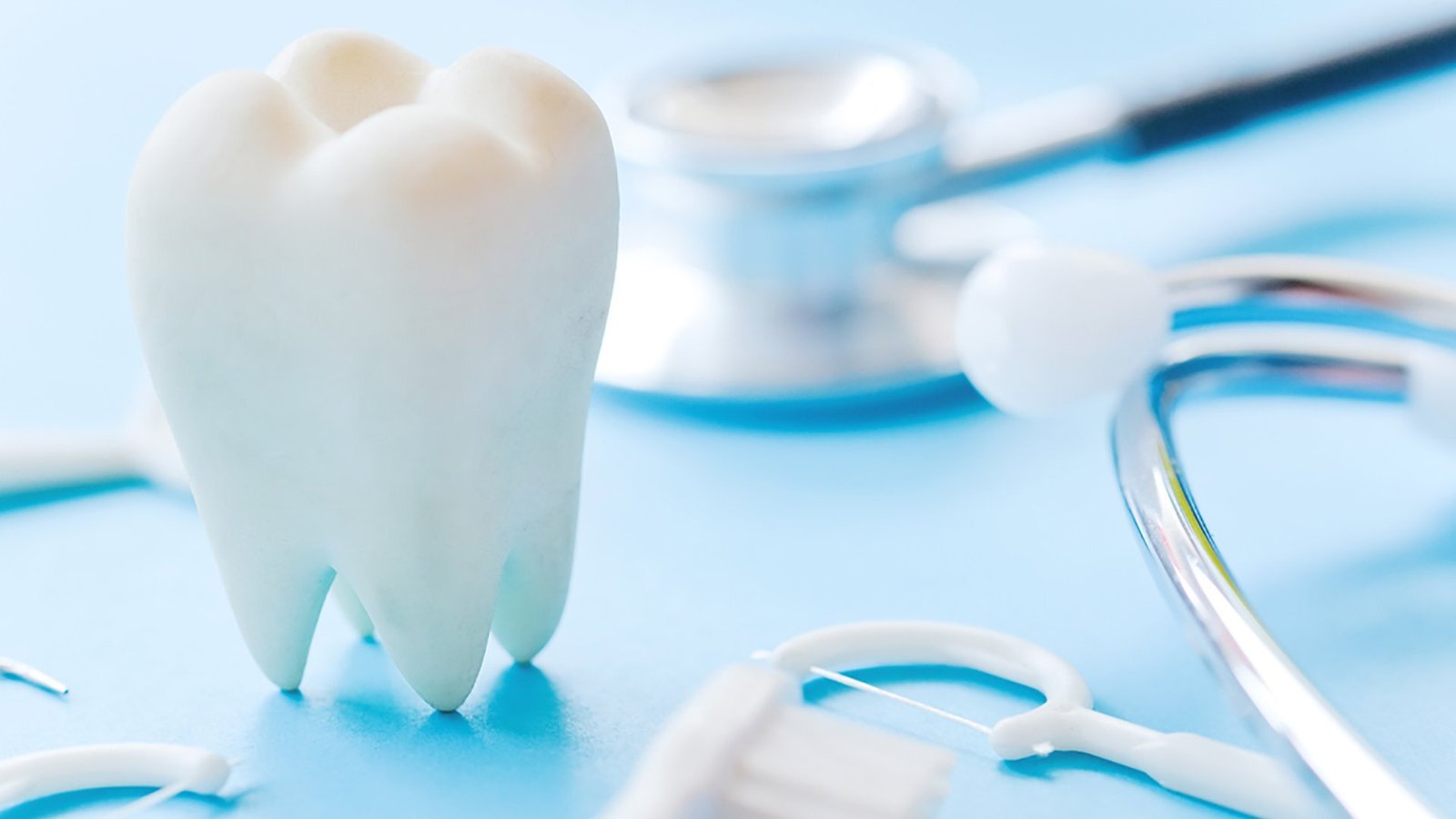There are several options that often come to mind when one thinks about oral care. The first things that come to mind are toothbrushes, dental floss, toothpaste, whitening strips, mouthwash, and more. Every product has its distinctive function, which includes eliminating bacteria, whitening teeth, or reducing tooth sensitivity. The main benefits of mouthwash that people could think of is freshening breath, reducing plague and antiseptic effects. But people are always confused about two products: mouthwash and mouth rinse. Are they the same thing? What does mouthwash do? When should you use mouthwash? Which one is better for your needs? Let’s dive in to discuss the topic further.
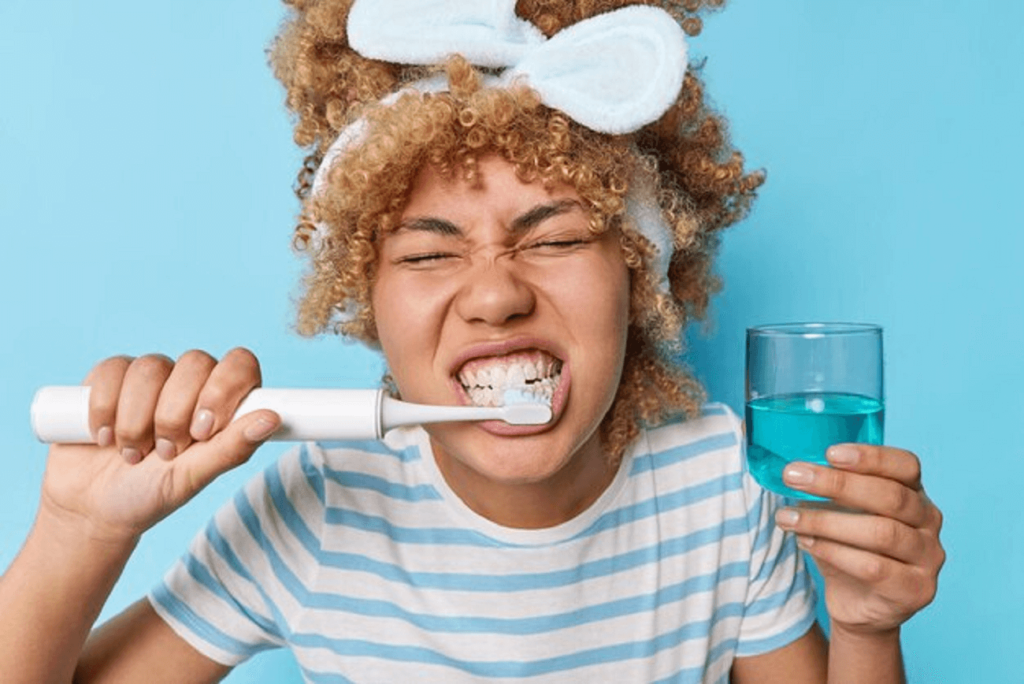
What Is Mouthwash?
Among all oral care products, mouthwash works like a multipurpose Dental Care product in liquid form. What does mouthwash do? It doesn’t just freshen your breath, it also helps kill bacteria and reduce plaque on the teeth. Most oral rinse mouthwash contains alcohol, which acts as an antiseptic to remove germs in the mouth. Some mouthwashes include fluoride for cavity prevention, hydrogen peroxide for teeth whitening, or even ingredients to reduce inflammation. However, do follow the guidelines on how to use mouthwash properly to ensure maximum effectiveness.
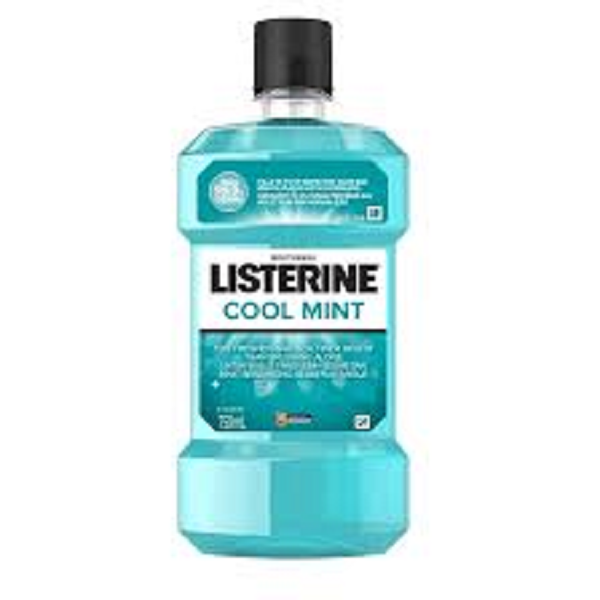
Pros of Mouthwash:
- Kills bacteria: Typically contained alcohol, the main range are highly effective at reducing harmful bacteria and plaque in the mouth.
- Fights bad breath: The benefit of mouthwash is that it provides instant freshness and can reduce mouth odors.
- Plaque reduction & reduce inflammation: Regular use can help prevent plaque buildup and a certain range could help to treat gum disease by reducing the inflammation.
Cons of Mouthwash:
- Alcohol content: Might cause a stingy or burning sensation that leads to dryness in the mouth.
- Not suitable for everyone: People with sensitive gums may find it uncomfortable when they rinse it with mouthwash.
What Is Mouth Rinse?
Mouth rinse would be an alternative compared to mouthwash as it is more commonly alcohol free based. It has different ingredients where it focuses on soothing the mouth and taking care of the gums condition. It may contain ingredients like fluoride to strengthen enamel or some essential oils for a gentler cleaning experience. Mouth rinses are particularly more popular oral rinse mouthwash among those with sensitive teeth or gums.
Pros of Mouth Rinse:
- Gentler formula: Alcohol free oral care products; with alternative ingredients such as cetylpyridinium chloride (CPC) that is less irritating which is ideal for sensitive mouths to reduce plaque.
- Prevent teeth cavity: Many mouth rinses contain fluoride to help prevent teeth cavity.
- Hydrating: Making it does not dry out the mouth like alcohol, which makes it a better option for daily routine as long term use.
Cons of Mouth Rinse:
Less effective against bacteria: It may not kill germs as effectively as alcohol based mouthwash.
Milder freshness: If you’re looking for a strong minty blast, a rinse might feel too subtle compared to alcohol-based oral rinse mouthwash.
Key Differences Between Mouthwash and Mouth Rinse
| Feature | Mouthwash | Mouth Rinse |
| Ingredients that freshen the mouth | Usually contains alcohol; hydrogen peroxide | Typically alcohol-free; antimicrobial ingredients such as cetylpyridinium chloride (CPC), chlorhexidine gluconate, essential oils (eg, mint or eucalyptus |
| Primary Function | Kills bacteria, freshens breath, antimicrobial effect | Soothes mouth, prevents cavities, antimicrobial effect with essential oil |
| Best For | Bad breath, plaque reduction, gum disease | Sensitive mouths with bad breath, sensitive gum for daily use |
Which Is the Better Oral Care Products?
There are many mouthwash and mouth rinse products available with different ingredients designed to prevent cavities, strengthen teeth, and even treat bleeding gums or early-stage gum disease (gingivitis).
Benefits of mouthwash and mouth rinse no longer only focus on killing bad-breath germs and freshens breath. It would be best to understand where the bad breath comes from to find the right fit and address it. If bad breath is your primary concern, both products can help, but they work differently. Alcohol-based oral rinse mouthwash is excellent at killing bacteria and plague that cause odor, providing immediate freshness. However, for long-term results, consider a combination use of the product and follow guidelines on how to use mouthwash effectively. This approach allows you to kill the plaque while neutralizing the acid level in the mouth, which is the sulfur compound, the root cause of bad breath.
For those looking to brighten their smile, some mouthwashes contain hydrogen peroxide or other whitening agents. These products can help remove surface stains, but they should be used sparingly to avoid tooth sensitivity. Mouth rinses, on the other hand, rarely include whitening ingredients, so they may not be the best choice for this purpose. Alternatively, if you have other oral concerns such as bleeding gums and early-stage gum disease (gingivitis), you should look for oral care products that contain antiseptic ingredients to reduce the inflammation. If you have a teeth sensitivity issue, it will be good to look for sensitivity series that could provide relief from tooth sensitivity due to cold, heat, acid or more as it helps to protect dentin with a protective layer. It’s also very important to take note of how to use mouthwash correctly..
How to Choose the Right Oral Care Product for You
Here are some tips to help you decide which product fits your needs:
- Your Oral Health Needs:
- Are you battling bad breath, trying to reduce plaque, or looking for a gentler way to care for your gums?
- Sensitive To Alcohol:
- If you have got sensitive gums or experience dry mouth, go for an alcohol free rinse. As there’s an alternative that could work with a similar result.
- Special concerns:
- Want whiter teeth? Perhaps you should look for a mouthwash with hydrogen peroxide or other whitening agents. Dealing with gingivitis? Opt for mouth rinse with antiseptic ingredients.
- Daily Routine:
- Mouth rinses are gentler and great for everyday use, while mouthwash can be used for targeted, intensive care.
FAQs: How to Use Mouthwash and Mouth Rinse Effectively
1. How long should I swish mouthwash or mouth rinse?
Swish the liquid around for 30-60 seconds to ensure it reaches every part of your mouth, including between your teeth and along the gumline.
2. Should I rinse my mouth after using mouthwash?
No, you should not rinse your mouth after using mouthwash. Simply spit out any excess mouthwash. Rinsing can dilute the product and reduce its efficacy.
3. Can I eat or drink after using mouthwash?
To ensure that the active ingredients works properly, wait at least 30 minutes before eating or drinking.
4. Can mouthwash replace brushing and flossing?
No, mouthwash is not intended to replace brushing and flossing. It helps to improve cleanliness and freshness, but it should be used in conjunction with other oral care products for good dental hygiene.
5. How do I ensure I use the right amount of mouthwash?
Use the attached cup to determine the appropriate volume, ensuring that you have enough oral rinse mouthwash to cover all areas of your mouth.
Final Thoughts: Mouthwash or Mouth Rinse?
At the end of the day, there’s no clear “winner”. It’s all about what works best for you and your oral health needs. Mouthwash is great for those looking for a powerful antibacterial solution, while mouth rinse is perfect for a gentler, alcohol-free clean.
Ultimately, the key to good oral health is consistency. Whatever you choose, make it part of your daily routine, and you will be well on your way to a healthier smile. The benefits of mouthwash and mouth rinse come down to proper use. Just remember to incorporate it into your routine alongside brushing and flossing. Aidite has over 17 years of experience in the dentistry field, having provided countless successful cases and treatment options. The company also offers a variety of professional dental equipment and materials. For more professional tips and product recommendations, visit our website


